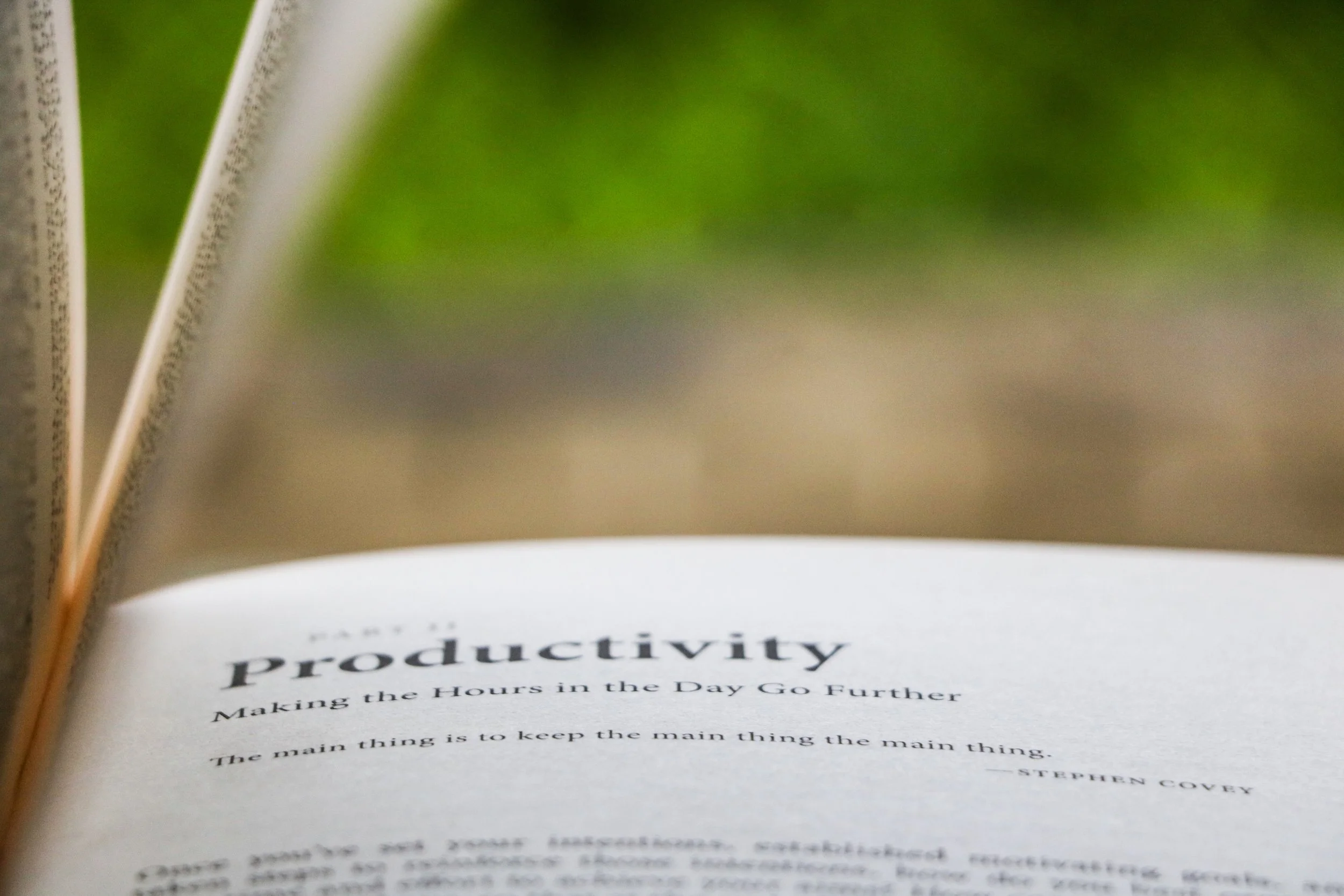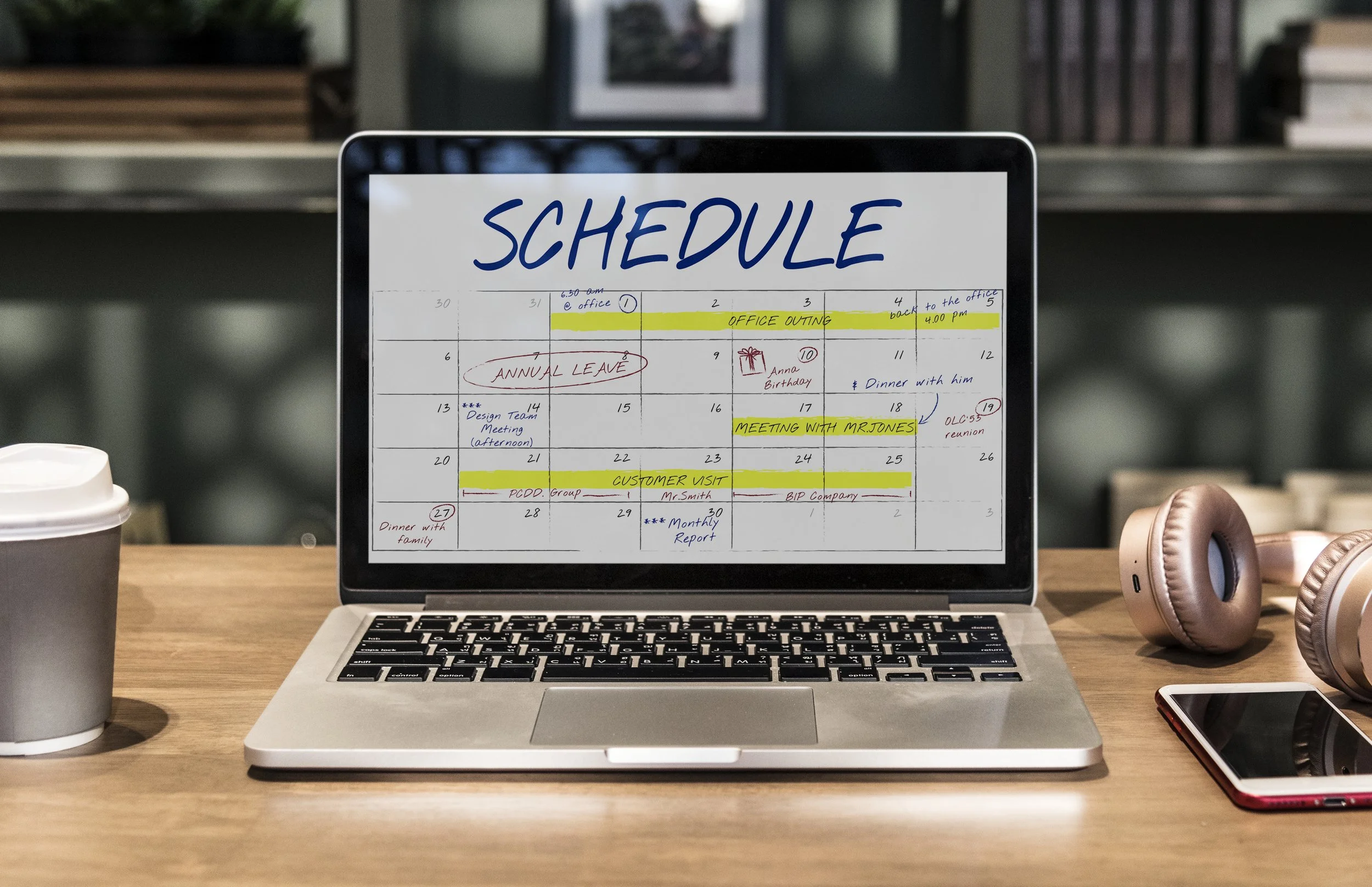Image by finesite
Have you ever heard of the saying, ‘If you fail to plan, you plan to fail?” The quote by Benjamin Franklin mentions that we are setting ourselves up for failure if we do not prepare. On the other hand, if we prepare, then we are setting ourselves up to succeed. And this begins with managing your time effectively.
Regain your rhythm and get productive with these helpful productivity tips!
Productivity Tips For Students #1: Make a schedule
If you’re juggling a busy schedule between school classes, extra-curricular activities, music lessons (or GuruLab classes), be sure to make a time schedule, so you could spend your time wisely (and effectively) for each activity. Create a simple time schedule for starters, as simple as in your notebook or look for the free planner apps available on Google Play Store or Apple Store!
Pro-tip: If you plan to use a planner app, make sure your app contains the features most relevant to your life and schedule. Additionally, it shouldn’t be a one-size-fits-all productivity app, so make sure you look out for these qualities:
-
Visually appealing
-
Customisable and easy to use
-
Free and compatible
With an organised schedule, you’ll be able to plan for your study and have time for yourself – which brings us to the second productivity tip!
Productivity Tips For Students #2: Remember to take breaks
Cramming yourself with facts will not help. Instead, take a breather and give yourself a break or a pat on the shoulder for a job well done! We oppose the myth that doing more equals being more productive. A person’s mind and body can only handle so much new information (and work), forcing it will only lead to fatigue and burnout.
Taking a break doesn’t mean shifting away from your essay writing to scrolling through TikTok videos for hours! It’s as simple as going for a nice walk in the park, refreshing yourself with snacks to watching your favourite Netflix drama series!
Whether it’s a 5-minute break or a 30-minute break, a simple break goes a long way! Regular breaks will help you reduce stress and fatigue and more importantly, maximise your productivity! Remember to take a moment to rest before moving on to the next one!
Productivity Tips For Students #3: Identify your productivity hours
Image by caldhela
Increase your productivity by identifying your schedule and learning when the right time works for your day-to-day activities. We’re all programmed differently – which is why some people are able to concentrate better during the day while some feel more motivated at night. Hence, ask yourself whether you’re an early bird or a night owl when it comes to being productive.
Your ability to complete a task depends on your daily habits. For instance, if your school ends in the afternoon, you can work on your homework or assignments at night. You could also write essays or learn tips to write a problem solution essay in the early morning if it best suits you.
Identify your productivity peaks and dips to determine the best time to accomplish tasks. As a result, you’d be able to maximise your productivity without reducing your time for other activities. Read here to learn more about identifying an excellent time to study.
Productivity Tips For Students #4: Avoid procrastination
Goal setting helps you stay motivated, but make sure the goals you set are reliable and realistic. Although it’s great to have big goals, taking on more than you can handle can prove to be detrimental. It is difficult to stay focused when your goals are unattainable, and procrastination will set in when you can’t concentrate.
Break your tasks into smaller chunks or even better, follow the SMART goals! SMART refers to Specific, Measurable, Attainable, Relevant and Time-bound. Here’s an example you could follow:
Goal: “I want to get an A for my English middle semester test”
-
Specific: Set a specific goal you would like to achieve. For instance, you would like to improve your grade from a B to an A on the next test.
-
Measurable: Set a goal that you can measure and achieve. In this case, obtaining an A is the measure of success.
-
Attainable: Ensure that your goal is attainable and look for ways you can improve your grade. This can include doing more essays
-
Relevant: Make sure your objective is clear. For example, the goal of getting an A for your English middle semester test is relevant to your longer goal, which is to obtain an A for your SPM or IGCSE.
-
Time-based: Look at the important date. If your exam is due in another month, you will need to plan and organise your schedule accordingly.
Your goal could be anything! (big or small) – whether it’s improving your grades or speaking skills, remember to organise your goal into smaller, attainable tasks. See how you can integrate SMART goals with our study tips!
Image by rawpixel
Productivity Tips For Students #5: Avoid any distractions
The next tip on productivity is to ensure your workspace or environment is distraction-free! Find a space or area that is conducive, comfortable (and most importantly, away from all the things that can make you lose your concentration).
Among the many distractions of today are:
-
Checking your social media notifications
-
Browsing movies and music
-
Playing video games
-
Sitting in loud, noisy places
There are many examples of distractions, and it’s important to differentiate between good distractions and harmful distractions. While you could always use your mobile phone or any gadget device, you should monitor how much time you spend using it!
Productivity Tips For Students #6: Get plenty of rest
And last but not least, our most valuable tip for productivity is to ensure you get plenty of sleep. Avoid pulling an all-nighter and make sure you get at least 8 hours of sleep to keep you energised and recharged for the day. Sleeping seven to eight hours each night is optimal. Therefore, you should get to bed at a reasonable hour every night after completing your tasks.
We don’t want you to feel discouraged if you don’t perform well or miss a critical deadline. It is important to take care of your mind and body, including getting enough sleep, having a proper, balanced diet and exercising regularly.
Remember that whenever your busy schedule or excessive work starts to overwhelm you, take a break and do something that will help you refresh your mind: meet with friends, take a short nap, or watch your favourite movie.




